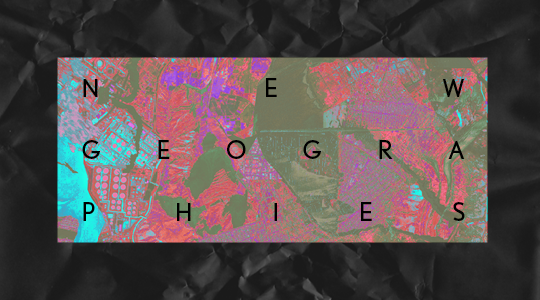New Geographies
CTM 2016 Theme

Music is now more than ever integrated into the global circulation of ideas, knowledge, people and commodities. Musicians everywhere have increasing access to digital resources that revolutionize music making and distribution. Internet and telecommunications intensify exchanges across existing cultural boundaries. At the same time, extreme regional disparities continue to exist in regards to the participation of minority communities, to political freedom, possibilities for mobility and travel, or when it comes to access to entry points into the dominant music markets.
Musicians in all parts of the world are facing increasingly complex realities that result from the clash between their unique, physically bound local contexts and the boundary expanding effects of globalization and digitization. Polar constellations between local and global practices, regional identity and cosmopolitan aspirations, physical locations and new social spaces housed within the global communication network, and between human agency and autonomous processes in nature and technology all feedback one into another, creating short-circuits that extend the possibilities and repertoire of current music even further. Musicians are creatively challenged to position themselves in this interplay between the dynamics and speed of global processes and their own perspective, their own locality, and their own time. Worldwide, ideas and inputs distributed through global media networks are appropriated and mingled with local practices. Even further, global and local impulses are becoming stretched, transversed, flipped and folded one into the other, and sutured into new morphs.
These processes are profoundly transforming the geographies of contemporary music towards increased cultural hybridity and the multiplication of perspectives. They change perceptions of our world from the old Euro-centric model of a universal modernity that radiates from the centre to the periphery, to the realisation that we are subject to a complex tapestry of multiple modernities, temporalities and geographies that question the hereto accepted notions of culture, identity, and community. Relations between what has been conceptualised as the global North, South, East and West, between mainstream and cultural niches, between producers and consumers, the real and the virtual, between culture, technology, and nature, must be revisited.
Through the New Geographies theme, the festival aims to explore music and sound practices that respond to these developments, and to provide the conceptual tools needed to approach the complexities of a polycentric, polychromatic, and increasingly hybrid (music) world with greater openness. Hyper cultural sound forms, spatially and temporally remote music practices, non-Western perspectives, queer and minority positions, pop culture identity politics, online music cultures, and the aesthetic examination of machinic and physical processes in the context of virulent materialistic theories, all form focal points for CTM 2016.
New Geographies also attempts to respond, within the realm of capabilities of a music festival, to current societal tendencies here and elsewhere. Disputes over resources, growing Islamophobia, apathy towards the fates of refugees, and conflicts around financial policies that increasingly detach from people’s realities currently fuel the rise of restorative initiatives all over Europe, aiming to revive essentialist beliefs of clearly defined cultures and identities to oppose this new hybridity. Through concerts, special events, exhibitions, and discourse programmes, the festival aims to provide spaces to experience and reflect musical ideas that reject such agendas.


